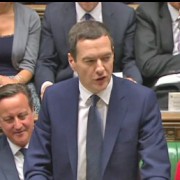Highlights from the Chancellor’s Budget, 18 March 2015
Along with some encouraging news about the UK economy, some interesting new measures were announced in the Chancellor’s Budget yesterday and below we highlight those which we feel will directly impact the majority of UK taxpayers:
- As widely forecast, the tax-free allowance will increase. The amount people can earn before paying tax will rise to £10,800 from 2016-17 and then to £11,000 from 2017-18. At the same points in time, higher earners will also receive a two stage increase to the threshold at which they start to pay a 40% rate of tax, with the threshold increasing to £43,300 by 2017-18.
- The Chancellor also announced a brand new Personal Savings Allowance whereby the first £1,000 of interest (£500 for higher rate taxpayers) will be tax tree. This new allowance will kick in from April 2016 and will take 95% of taxpayers out of savings tax completely. (Fact Sheet available here).
- Another new scheme announced was the introduction of a new ‘Help to Buy ISA’ aimed at prospective first time buyers. This fairly generous scheme means that the Government will chip in up to £50 extra per month (up to a ceiling of £3,000) when an eligible saver saves up to £200 per month towards their first home. (Fact Sheet available here).
- In another ISA reform, savers will now be able to withdraw money from a new Flexible ISA and deposit it back later in the same financial year without losing any of their usual ISA tax benefits. £15,240 will be able to be put into this re-styled savings vehicle. Read more





 Part of the Chancellor’s recent Budget included plans to recover tax owed to the Treasury direct from the debtor’s bank account — all done directly and without a Court Order being necessary. This has been criticised widely but HMRC says that only 17,000 people in the UK per year would fall into this potential scenario and that it would only occur for those owing more than £1,000 in unpaid tax or tax credits owed. Moreover they say that they would only target long-standing tax debts from those who had received a minimum of 4 payment demands and whose bank and savings accounts combined had a minimum total balance of £5,000 or more remaining after any tax bad been directly seized. Also the debtor involved will have been issued with a final warning period of 14 days, during which the funds concerned would be frozen, before any tax was directly withdrawn.
Part of the Chancellor’s recent Budget included plans to recover tax owed to the Treasury direct from the debtor’s bank account — all done directly and without a Court Order being necessary. This has been criticised widely but HMRC says that only 17,000 people in the UK per year would fall into this potential scenario and that it would only occur for those owing more than £1,000 in unpaid tax or tax credits owed. Moreover they say that they would only target long-standing tax debts from those who had received a minimum of 4 payment demands and whose bank and savings accounts combined had a minimum total balance of £5,000 or more remaining after any tax bad been directly seized. Also the debtor involved will have been issued with a final warning period of 14 days, during which the funds concerned would be frozen, before any tax was directly withdrawn. On 5 December 2013 George Osborne, Chancellor of the Exchequer, gave his Autumn Statement in Parliament. Key announcements included:
On 5 December 2013 George Osborne, Chancellor of the Exchequer, gave his Autumn Statement in Parliament. Key announcements included: